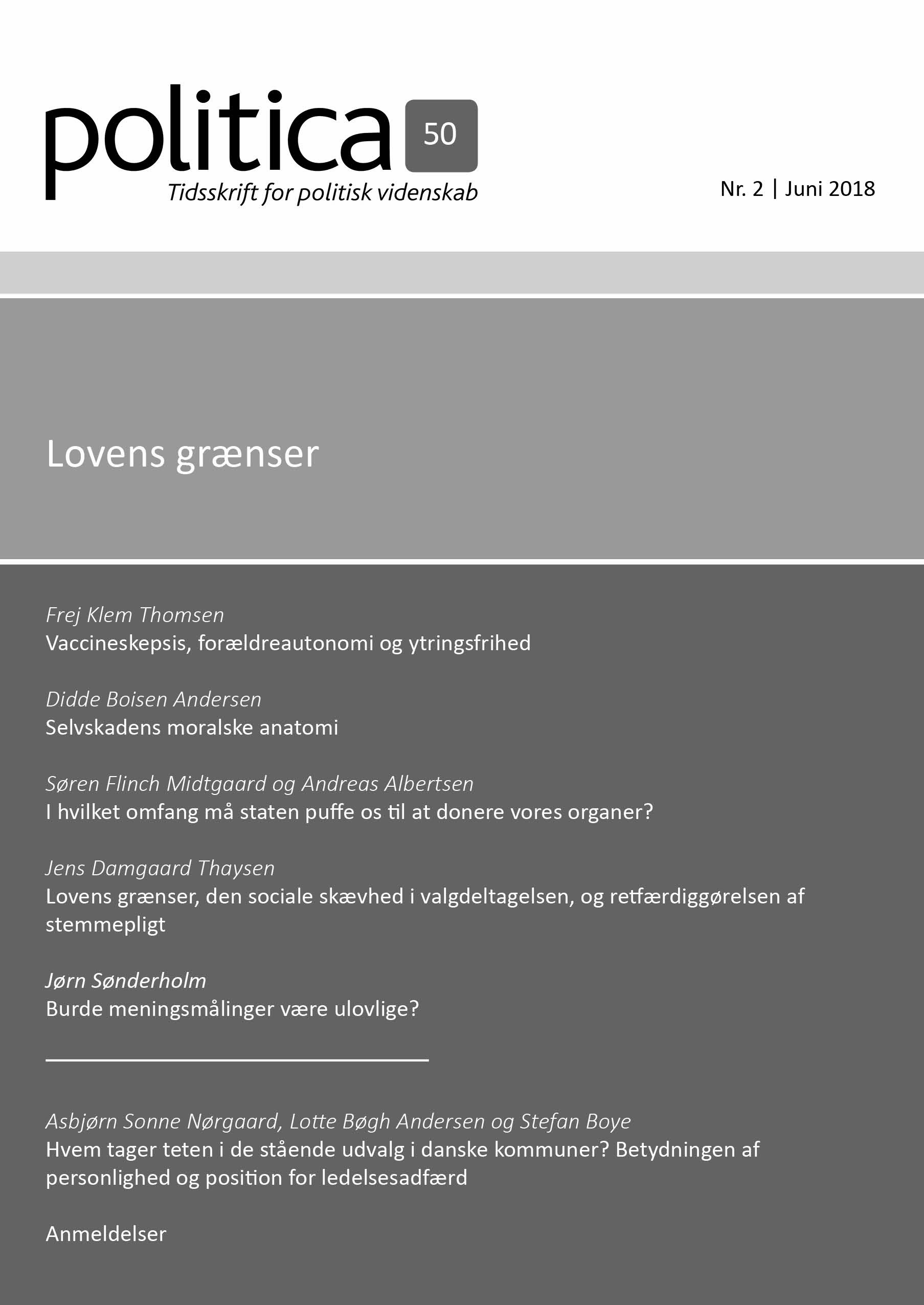Vaccine skepticism, parental autonomy, and freedom of speech
DOI:
https://doi.org/10.7146/politica.v50i2.131199Abstract
This article sketches the public health problem of insufficient vaccine coverage caused by vaccine skepticism, and argues that liberal states are morally permitted to and should adopt legal restrictions to counter the problem. It first presents an argument for implementing a policy of requiring children to follow the regular vaccine program as a condition of entry to schools and childcare institutions, since this policy is likely to increase vaccine coverage and thereby prevent harm to children. It examines the two most obvious objections to this argument – that such a policy would be impermissibly paternalist, and that it would impermissibly interfere with the prerogative of parents – and finds them both wanting. Next, it presents an argument from equivalence to the effect that vaccine-skeptical misinformation should be exempt from freedom of speech, since it causes harm for reasons similar to conventionally prohibited forms of speech. It then examines five potential morally relevant differences between vaccine-skeptical misinformation and comparable forms of conventionally prohibited speech and argues that none of them constitutes a genuinely relevant difference. The article concludes that barring future plausible arguments to the contrary, both restrictions are permissible and desirable.





